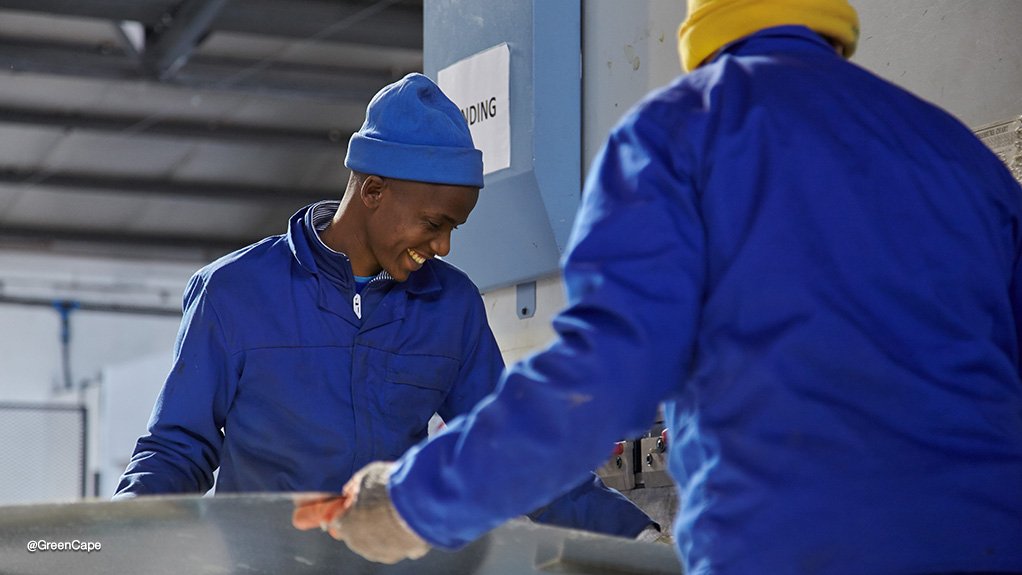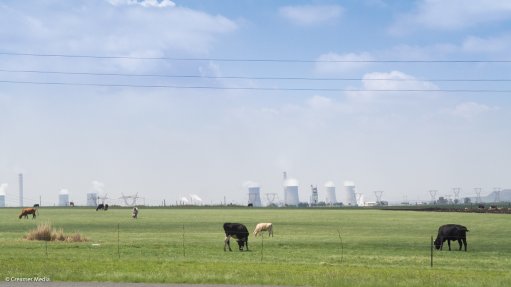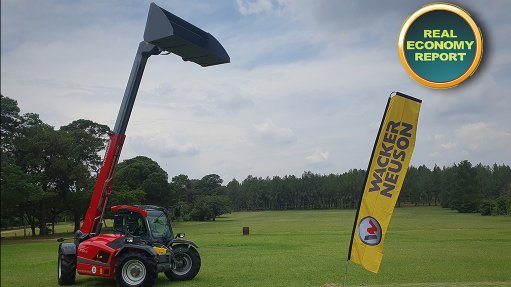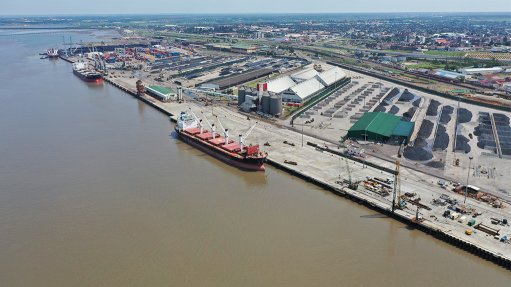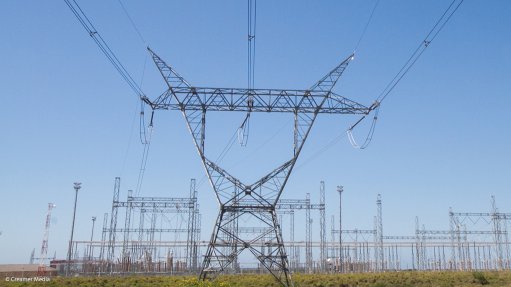Decision to impose duties on PV modules met with mixture of surprise and support
The South African Photovoltaic Industry Association (SAPVIA) has expressed surprise at government’s decision to introduce a 10% import duty and rebate on “photovoltaic cells assembled in modules or made up into panels” in the absence of consultations with domestic consumers.
The trade measure has also been implemented ahead of the formal launch of the South African Renewable Energy Masterplan (SAREM), which is meant to guide the industrialisation of renewable-energy value chains. The launch of SAREM is believed to be imminent, with some of the contents of the plan having already been reported in the media.
Introduced in line with Section 48 of the Customs and Excise Act, the new duty was confirmed in a Government Gazette notice dated June 28 and authorised by then Finance Minister Enoch Godongwana, who was subsequently reappointed to the position as part of the government of national unity.
The International Trade Administration Commission of South Africa (Itac) provided notice in August last year that such a duty was being considered alongside a temporary rebate facility for PV cells assembled in modules or made up into panels.
This action was triggered by an application for such protection lodged in 2019 by ARTSolar, which has a facility in KwaZulu-Natal able to produce some 325 MW of modules yearly.
Itac concluded that there was a need to provide protection to ARTSolar and Seraphim, as they had invested heavily in their manufacturing capacity and were the only two domestic manufacturers remaining following disinvestments by others.
The 10% duty, it also concluded, should be introduced together with a temporary rebate provision, which will be made available in the form of a rebate permit “issued at such times, in such quantities, and subject to such conditions as the Itac may allow”.
SAPVIA reports that, having been made aware of the proposed duty and rebate, it conducted detailed consultations with its members and provided a written response to Itac on the September 29, 2023, which included a request for engagements with Itac and the Department of Trade, Industry and Competition.
It had already conducted a localisaiton study, which was updated in 2023, to assess local manufacturing potential, and the findings were shared with Itac.
“We were of the view that such engagement will enable us to explore instruments that can prioritise investment in quick wins and low hanging fruit and localisation incentives,” SAPVIA CEO Dr Rethabile Melamu tells Engineering News, while reporting that Itac never committed to such an engagement.
SAPVIA’s governing committee has met to discuss a possible response and has warned that the immediate implication is a likely 10% price increase to cover any potential problems or delays in importers utilising the rebate mechanism.
It also wants clarity on transitional arrangements, especially as most of its members are not clear on permit applications, including how these will be dealt with for earlier orders and ongoing projects that have already reached financial close.
“Despite continued module price declines over the last three to four years based on upstream cost of production decreases and oversupply locally and internationally, module pricing still makes up a significant portion of the total solar PV project capital expenditure, ranging from 30% to 45% for rooftop PV and decreasing to 20% to 35% for carport and ground-mount solutions,” Melamu notes.
However, Gaylor Montmasson-Clair, who is Trade & Industrial Policy Strategies senior economist and SAREM facilitator, believes the implementation of a 10% custom duty on imported PV panels is long overdue.
He tells Engineering News that the duty is fully aligned with SAREM, which considers the careful use of tariffs on selected products to be necessary to support local industrial development.
“It will help local panel manufacturers compete in the domestic market and reach full production capacity and hopefully expand in the future.”
Montmasson-Clair acknowledges that global panel production is a highly competitive and subsidised industry, but he says South Africa fares well as a manufacturing location to service the local and regional markets.
“Of course, it is not the only intervention that is required to foster the competitiveness of local panel manufacturers.
“Anchor demand from public procurement, including the Renewable Energy Independent Power Producer Procurement Programme and other public procurement programmes, is critical.
“Supply-side support, in addition to the customs duties, would also help local manufacturers compete on the private market,” he explains.
The duties, Montmasson-Clair notes, are also attached to a rebate facility “so as not to artificially raise the price of panels in South Africa”.
“The goal of the duties is to support local and prospective manufacturers to reach full capacity and expand production. Beyond that, the rebate facility is available.”
For its part, SAPVIA acknowledges government’s desire to protect the solar PV manufacturing capability and to expand it in the medium to long term in line with the ideals of the SAREM.
The association also stresses that it is a proponent of localisation of the solar PV value chain as evidenced through the studies it has commissioned on localisation.
“Nonetheless, SAPVIA supports localisation of components that is steeped in empirical data, and as such has served on the project steering committee of the SAREM since the inception of the process.
“We would have expected an extensive consultation with our members as we believe industry is critical to determine the short-, medium- and long-term impact of supporting mechanisms, including import duties,” Melamu says.
Article Enquiry
Email Article
Save Article
Feedback
To advertise email advertising@creamermedia.co.za or click here
Comments
Press Office
Announcements
What's On
Subscribe to improve your user experience...
Option 1 (equivalent of R125 a month):
Receive a weekly copy of Creamer Media's Engineering News & Mining Weekly magazine
(print copy for those in South Africa and e-magazine for those outside of South Africa)
Receive daily email newsletters
Access to full search results
Access archive of magazine back copies
Access to Projects in Progress
Access to ONE Research Report of your choice in PDF format
Option 2 (equivalent of R375 a month):
All benefits from Option 1
PLUS
Access to Creamer Media's Research Channel Africa for ALL Research Reports, in PDF format, on various industrial and mining sectors
including Electricity; Water; Energy Transition; Hydrogen; Roads, Rail and Ports; Coal; Gold; Platinum; Battery Metals; etc.
Already a subscriber?
Forgotten your password?
Receive weekly copy of Creamer Media's Engineering News & Mining Weekly magazine (print copy for those in South Africa and e-magazine for those outside of South Africa)
➕
Recieve daily email newsletters
➕
Access to full search results
➕
Access archive of magazine back copies
➕
Access to Projects in Progress
➕
Access to ONE Research Report of your choice in PDF format
RESEARCH CHANNEL AFRICA
R4500 (equivalent of R375 a month)
SUBSCRIBEAll benefits from Option 1
➕
Access to Creamer Media's Research Channel Africa for ALL Research Reports on various industrial and mining sectors, in PDF format, including on:
Electricity
➕
Water
➕
Energy Transition
➕
Hydrogen
➕
Roads, Rail and Ports
➕
Coal
➕
Gold
➕
Platinum
➕
Battery Metals
➕
etc.
Receive all benefits from Option 1 or Option 2 delivered to numerous people at your company
➕
Multiple User names and Passwords for simultaneous log-ins
➕
Intranet integration access to all in your organisation



